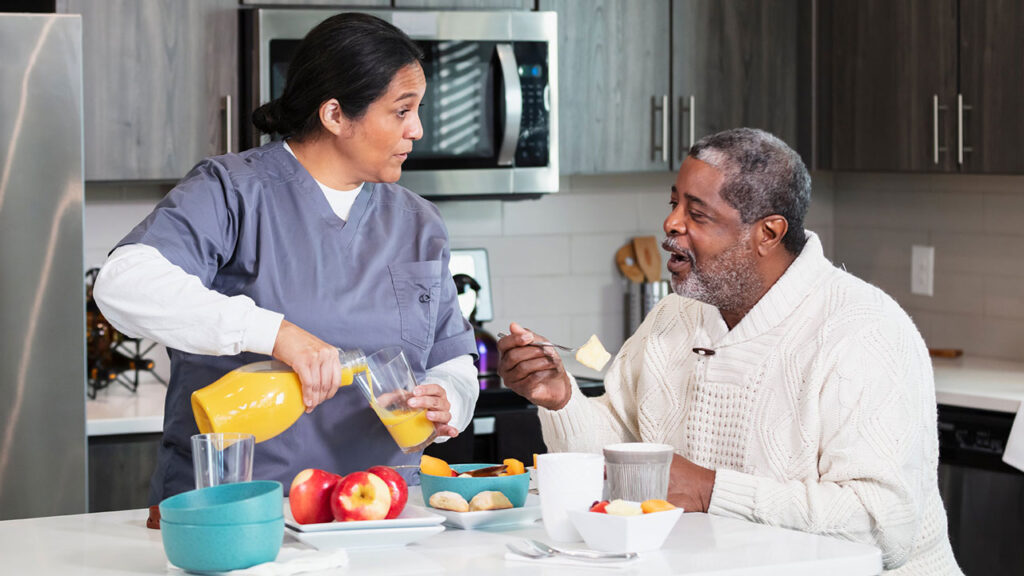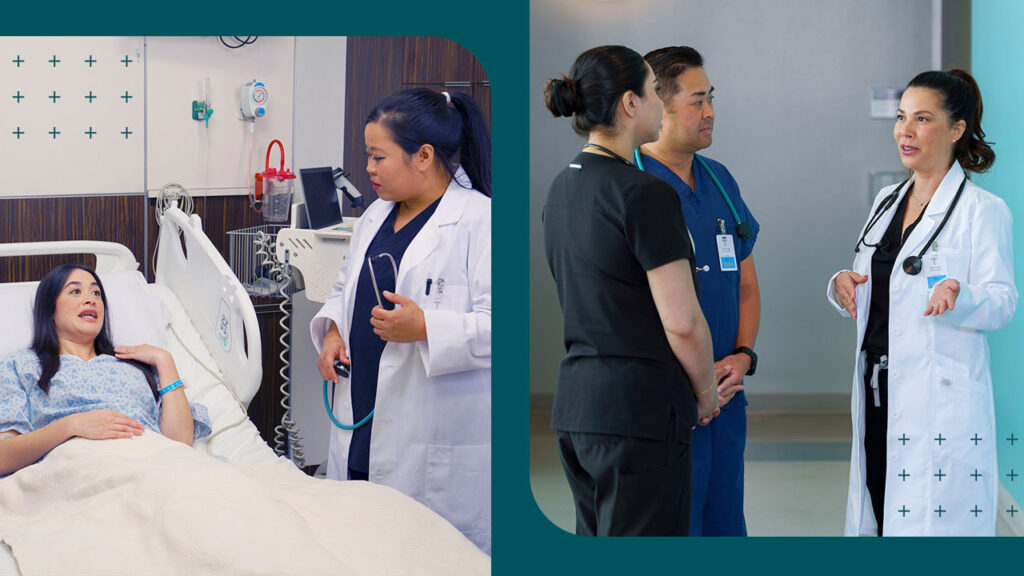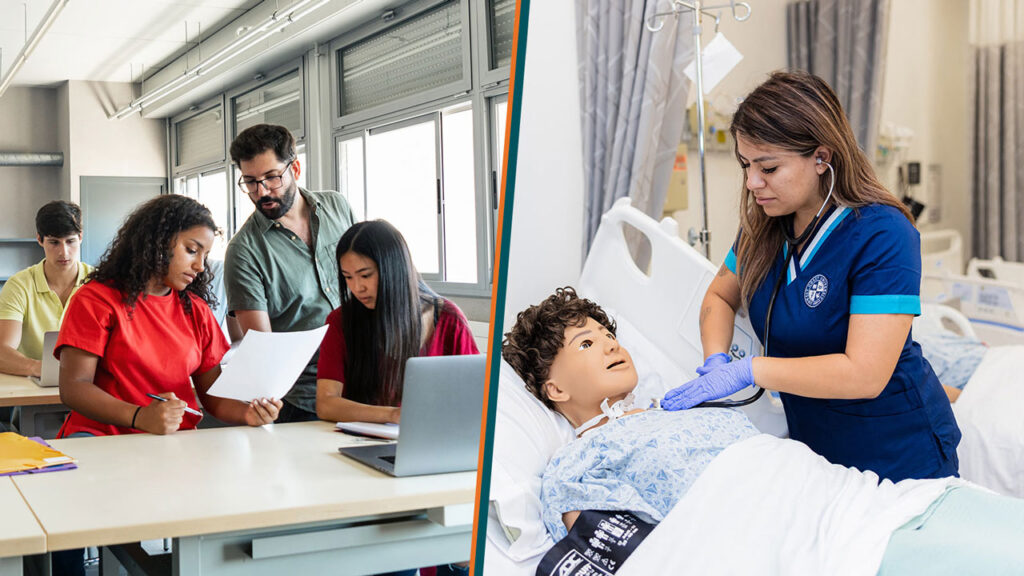In February, the inaugural class of the Masters in Occupational Therapy program held a pinning ceremony at West Coast University’s South Los Angeles Campus to mark a milestone in their education as they move from classroom studies to clinical work in the field.
Dr. Nicolaas van den Heever, the Dean of the Masters in Occupational Therapy Program, spoke to the students and their family and friends about their achievements since they began the program. He introduced the faculty in attendance who included, Dr. Heather Thomas, Dr. Ann McDonald, Dr. Erin Murray, Dr. Stacey Willis, Dr. Diana Gantman, and Professor Diane Gale.
Dr. van den Heever told the class how proud he and everyone in the room was of their hard work and he congratulated them on their progress to field work after two years in the classroom.
“Today is also a new phase, a new beginning, a new level of responsibility,” he said. “You have been looking forward to this day and here it is. I hope that you are excited, but also a little nervous. As long as you are open to learn, to absorb. Be humble and respectful. Recognize your own barriers and limitations. That’s how you will grow.”
Beth Hobbs, the representative of the inaugural class, spoke on behalf of her fellow students.
“We were the first born, the trail blazers, the inaugural class, the ones who took the risk, and the ones who pushed the boundaries,” she said. “Fifteen of us eagerly jumped with both feet in, into this budding program, with the confidence that West Coast University and Dr. van den Heever would mold us into holistic clinicians.”
During the ceremony, the members of the program all took the Transition to Fieldwork Pledge and received their pins before celebrating the occasion with family and friends.
Frequently Asked Questions:
Q: What is a pinning ceremony for occupational therapy?
A: A pinning ceremony in occupational therapy is a traditional event that marks the transition of students from classroom studies to clinical fieldwork. It symbolizes the students’ readiness to begin hands-on patient care and represents a significant milestone in their professional development.
Q: How does WCU prepare MSOT students for their fieldwork experience?
A: WCU prepares students through 4 trimesters of rigorous classroom studies before transitioning to fieldwork. The program emphasizes the importance of being open to learning, humble, respectful, and recognizing one’s own barriers and limitations as key factors for growth in the field.
Q: How has WCU’s occupational therapy program evolved since its inaugural class?
A: Since the inaugural MSOT class, WCU has continued to develop its occupational therapy programs. Students at our Center for Graduate Studies in Los Angeles can now choose between a master’s or doctoral degree in occupational therapy. While an MSOT provides a solid foundation for clinical work, OTD programs provide additional preparation for those who want to go into research or academia through a capstone project.
WCU provides career guidance and assistance but cannot guarantee employment. The views and opinions expressed are those of the individuals and do not necessarily reflect the beliefs or position of the school or of any instructor or student.


